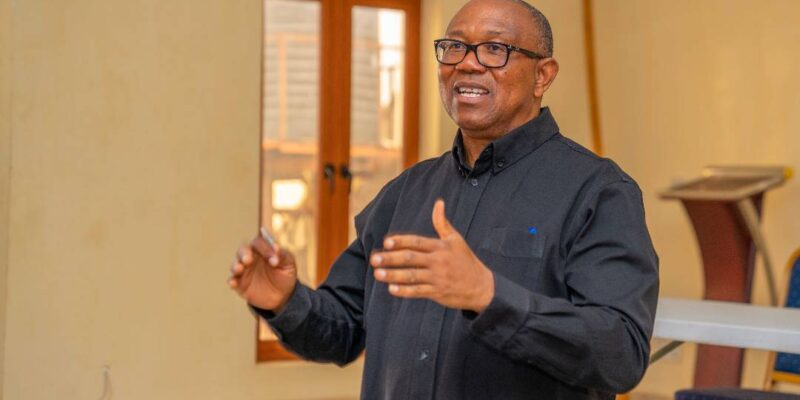Fresh indications suggest that former Labour Party (LP) presidential candidate, Peter Obi, may be on his way back to the Peoples Democratic Party (PDP), following the party’s decision to zone its 2027 presidential ticket to the South.
This development comes amid the ongoing reconciliation efforts led by former Senate President Bukola Saraki, whose committee has been engaging aggrieved PDP members in a bid to unite the party ahead of the next general election.
Obi, who served as the running mate to PDP’s 2019 presidential candidate, Atiku Abubakar, defected to the Labour Party in 2022, where he contested in the 2023 presidential election. He finished third behind Atiku and eventual winner, President Bola Tinubu of the All Progressives Congress (APC). His candidacy under the LP was buoyed by massive youth support, popularly known as the Obidient Movement.
Despite his recent involvement in an opposition coalition that adopted the African Democratic Congress (ADC), Obi has maintained that he remains a member of the Labour Party and has not officially announced a defection.
However, Dr. Katch Ononuju, a close ally and former Special Adviser on Public Affairs to Obi during the 2023 campaign, confirmed in a recent interview that talks are ongoing between Obi and key PDP leaders. According to Ononuju, the primary reason Obi left the PDP in 2022 was due to the party’s refusal to zone its presidential ticket to the South. With the party now reportedly committing to that zoning arrangement, Obi’s return is being seriously considered.
“What caused the crisis was the refusal of the party’s National Working Committee to uphold zoning, which led us to start the youth movement,” Ononuju explained. “Now, the Saraki-led committee has assured us that the party has agreed to zone the 2027 ticket to the South, as announced last week at the NAF Conference Centre. That’s the foundation we were waiting for.”
He further disclosed that Obi has recently held talks with prominent PDP figures, including a meeting with former Niger State Governor Babangida Aliyu, as part of the ongoing consultations.
Ononuju dismissed speculations involving certain individuals within the movement, emphasizing that those who originally broke away from the PDP—such as himself and Doyin Okupe—remain focused on addressing the core issue of zoning and equitable representation.
He added that the movement is not opposed to rejoining the PDP, provided the party upholds its current commitment to zoning.
“We took the LP platform because the PDP refused to zone. Now that they’ve agreed to do so, we’re open to dialogue. If the ADC also zones to the South, then we can urge them to join forces with the PDP. Unity is possible if the foundational issues are addressed,” he said.
Ononuju also downplayed the relevance of the ADC as a long-term political platform, claiming it lacks the structure and base needed to contest seriously at the national level.
“If we return to the PDP, we can rebuild what was damaged by internal party conflicts. Political parties are made up of people, and with the right consensus, we can reorganize, reconcile, and prepare to win,” he added.
As the PDP works to heal its internal divisions and strengthen its base ahead of 2027, Obi’s potential return could reshape the dynamics of the opposition bloc and bolster efforts to mount a unified challenge to the ruling APC.

Comments